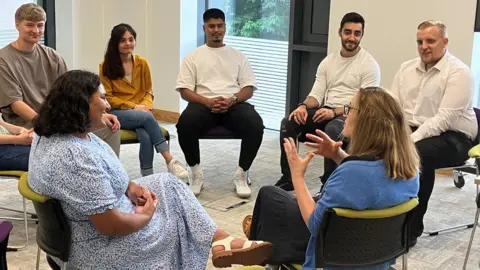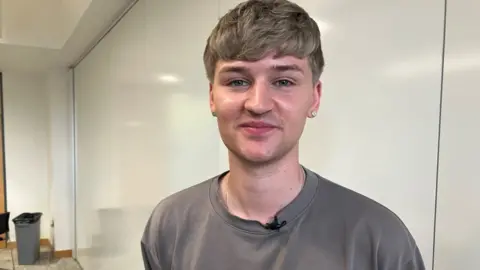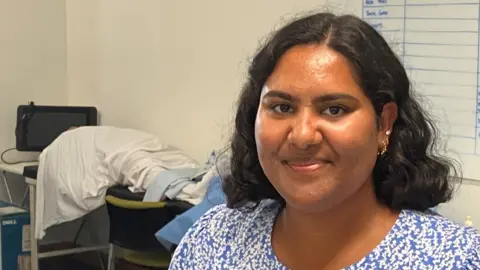Ground-breaking medical course turns out first qualified doctors
 BBC
BBCA group of students from disadvantaged backgrounds are celebrating completing a university degree in medicine.
The 13 new doctors are the first cohort from the University of Leicester's Medicine with Foundation course which started in 2017.
It is aimed at those who want to become doctors but whose background makes it unlikely they will meet the very high entry requirements.
The students were admitted for their potential and not just their grades.
The University of Leicester set up the Medicine with Foundation course to encourage more young people from poorer backgrounds and state schools to get into medicine.
Students had typically achieved three B grades at A level compared to three A grades on the standard medical degree programme.
Dr Sam Adcock, who leads the foundation course, said: "Classically students from disadvantaged backgrounds do not know any doctors and were less likely to get into medicine."
Students completed the foundation year - which includes a unique Clinical Empathy Programme - before continuing on to the standard five-year medicine degree.

Reece Saxton, 24, grew up in a single parent family and was one of the students to benefit from the course.
"I enjoyed science at school but never really considered a career in medicine," he said.
"I knew I didn't want to be in a lab and wanted to be surrounded by people.
"Without this course I don't think I'd be able to do this career."
Mr Saxton, from Shirebrook in Derbyshire, was the first person to go to university in his wider family.
He said his family and friends were "really proud" of his achievement.

Sara Sabur, 24, also completed the course and said it was a long but rewarding experience.
Each student received a £19,000 scholarship, part-funded by the Stoneygate Trust, which she said made going to university possible.
"I grew up on a council estate and the cost of university definitely added to my apprehension," she said.
The first group of students to emerge from the course comes as the government prepares to double the number of places in medical school.
The 15-year NHS England workforce plan also emphasises the need to make the medical workforce more representative of the communities it serves.

Follow BBC East Midlands on Facebook, on Twitter, or on Instagram. Send your story ideas to [email protected].
